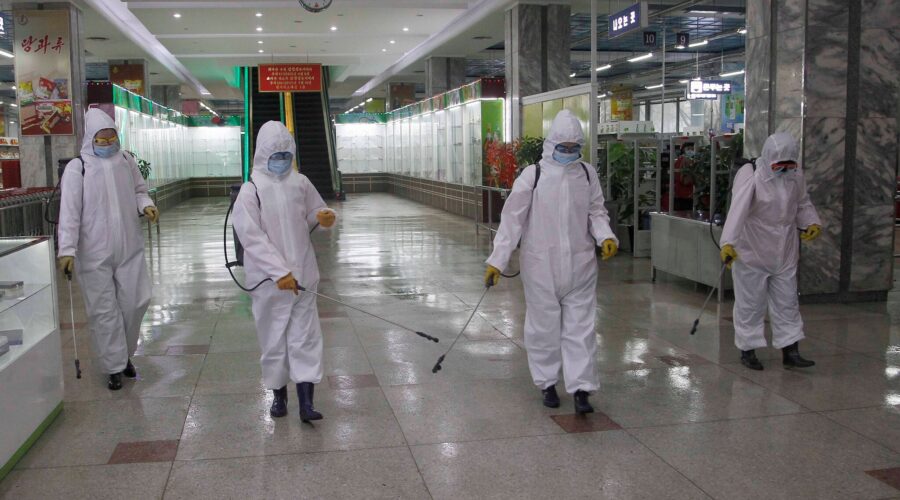On Thursday, the (WHO) World Health Organization said that it had resumed shipments of medical supplies to North Korea to help its Covid-19 response, in what appears to signal a relaxation of the closed-border policies enforced by Pyongyang early in the pandemic.
The agency said its shipments of medical supplies, together with other international supplies destined for North Korea, had become stranded in China after Pyongyang sealed the country’s borders in January 2020 when Covid-19 was declared a public health emergency of international concern.
North Korea’s Ministry of Public Health told the agency several months ago that it would allow the stranded supplies to be transported through the northern Chinese port of Dalian, a WHO. spokesman, Tarik Jasarevic, said in an emailed statement.
As a result, the agency had sent some of the medical supplies and equipment to the North Korean port of Nampo, he said.
North Korea has not reported any Covid-19 infections, and it turned down several offers of vaccines, including ones from the United Nations-backed Covax facility and Russia. But North Korea’s leader, Kim Jong-un, said in June that lapses in his country’s anti-pandemic campaign had caused a “great crisis” that threatened “grave consequences,” according to the state media. He did not clarify whether he was referring to an outbreak within the country.
WHO Shipments to North Korea
The WHO said its shipments to North Korea included health kits, medicines and other medical supplies that would support essential health services at primary health care centers.
The agency said it had been told that these supplies remained under quarantine in Nampo.
In other news from around the world:
- The authorities in France announced that, as of Oct. 15, coronavirus screening tests would no longer be free for unvaccinated people, signaling a new phase in the government’s strategy to encourage inoculations. The change means that unvaccinated people will bear the financial burden of meeting the proof of coronavirus status required by a law enacted this summer before they can enter cafes, restaurants, theaters and many other indoor venues.
- The 14-day average of new daily coronavirus cases in Spain dropped below 50 per 100,000 people on Thursday for the first time in more than a year, Reuters reported. Prime Minister Pedro Sánchez called the return to low-risk status “a crucial milestone on the road to recovery” on Twitter.
- Starting on Saturday, Greece will begin a two-week test of lifting some pandemic restrictions in regions where coronavirus cases have been the highest, but for the most part, only vaccinated people will be able to enjoy the heightened freedom. The restrictions — notably a curfew from 1 a.m. to 6 a.m. and a ban on music in bars and restaurants — were imposed last month in “red areas” across much of the country’s north and parts of its center, as a way to fight a fourth wave of the virus. But unvaccinated people who cannot prove that they recently recovered from Covid remain barred from indoor venues like bars, cafes and restaurants.
- Even as parents in the United States wrestle with difficult questions over-vaccinating their children against the coronavirus, families in other countries have been offered a novel option: giving children just one dose of the vaccine. Officials in Britain, Hong Kong, Norway and other countries have recommended a single dose of the Pfizer-BioNTech vaccine for children ages 12 and older — providing partial protection from the virus, but without the potential harms occasionally observed after two doses. On Wednesday, Sweden and Denmark announced that adolescents should get only one jab of the Moderna vaccine.
- The British government said Thursday that international travel restrictions will be further relaxed next week by removing the hotel quarantine requirement for arrivals to England from 47 countries, including South Africa, Mexico and Thailand. The change comes into effect on Monday, and only seven countries will remain on the “red list” of visitors required to to enter hotel quarantine for 11 nights.
- New figures by the Robert Koch Institute show that Germany has vaccinated 3.5 million more people against the coronavirus than previously thought. The country’s health minister said Thursday that some vaccinations, particularly of employees at big companies or those given by mobile vaccination teams, may have not been fully reported.
Source: Here
